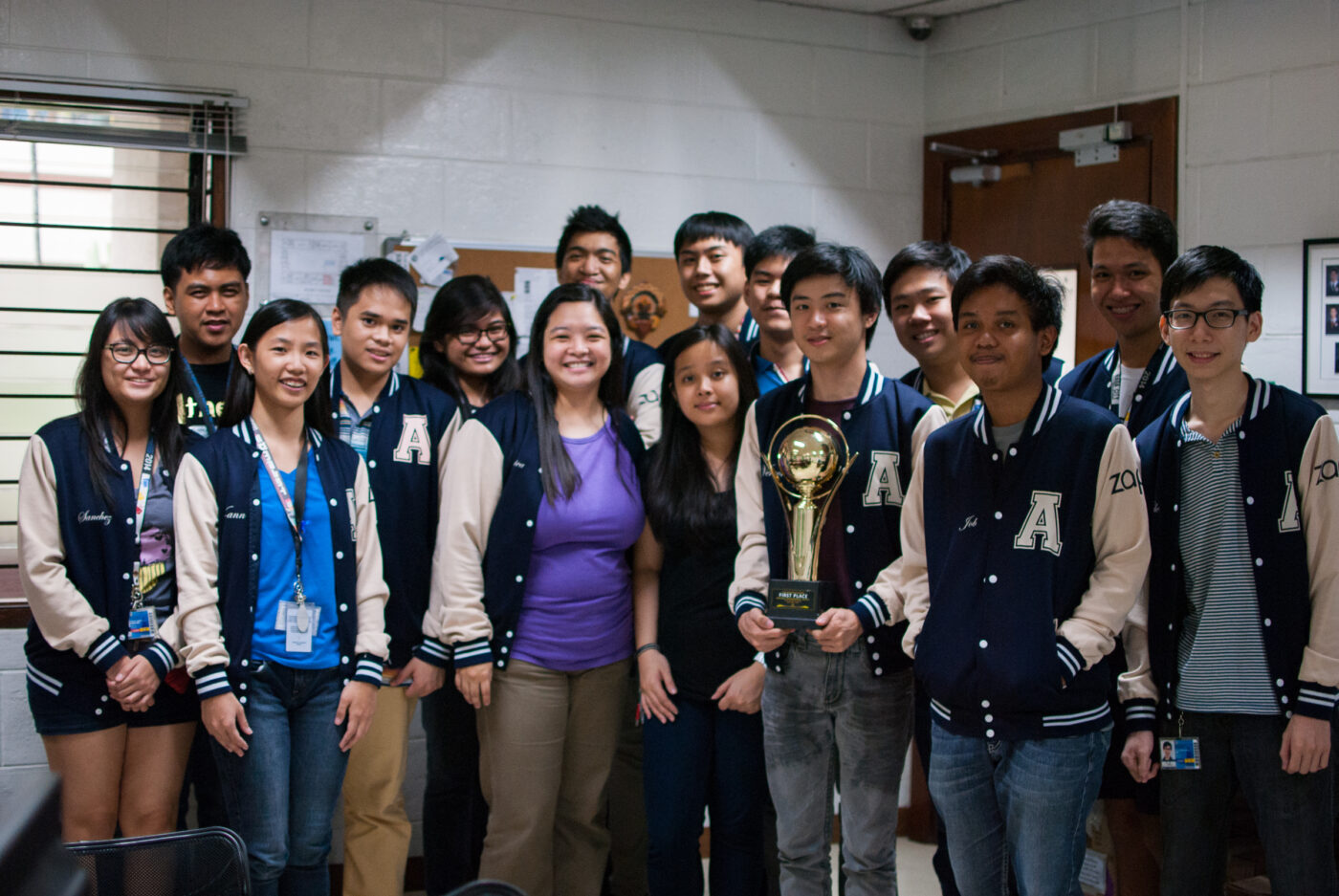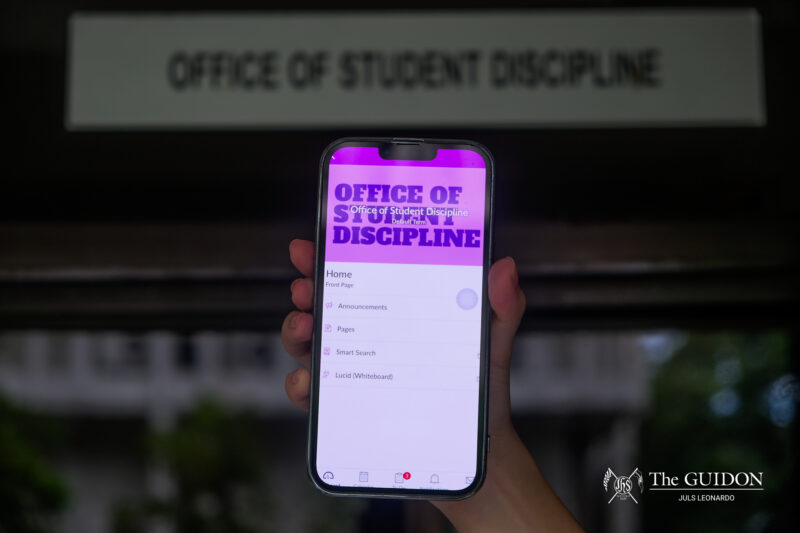FOUR TEAMS from the Ateneo Programming Varsity (Progvar) squad took top spots at the national level of the Association for
Computing Machinery-International Collegiate Programming Contest (ACM-ICPC) held at the Ateneo de Naga University on September 6.
Team Fuchsia Moth, comprised of sophomores David Cuajunco and Rico Tiongson, and junior Kyle See, earned first place in the competition, while Team Operator, composed of junior Jaren Rex, and seniors Job Bangayan and Gabriel Sanchez, came in at second place.
Team Carmiel, formed by seniors Amiel Reveche, Camille Ruiz and Charlene Tolentino, and Team Bumblebee with juniors Hadrian Ang, Miguel Palma and Vermille Saw finished at fourth and fifth place, respectively.
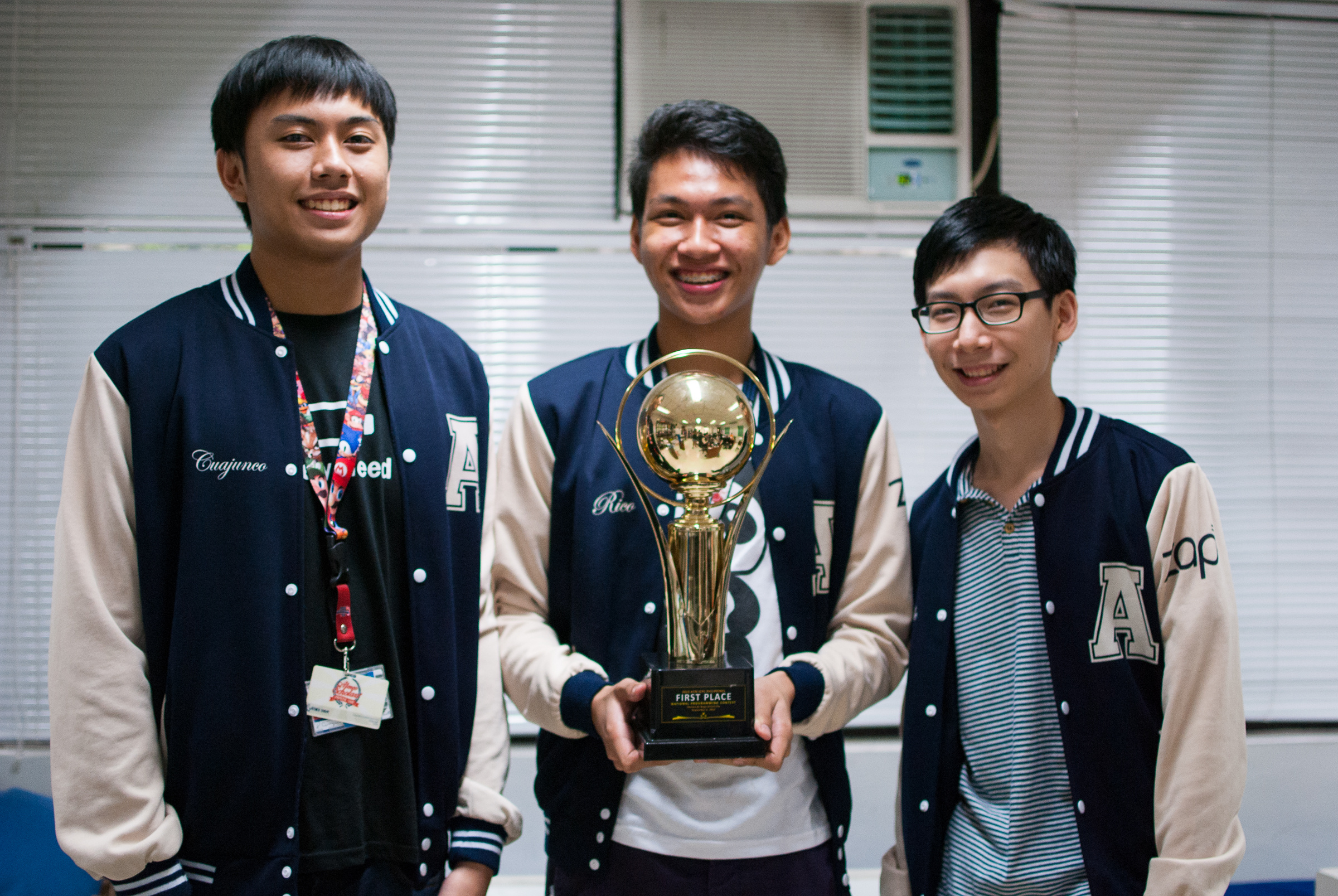
Team Fuchsia. L-R: David Martin Cuajunco (2 BSM AMF), Jose Enrico Tiongson (2 BS CS) and Kyle Stephen See (3 BSMS CS)
Progvar revolves around “problem solving through code,” explained Assistant Team Manager Jessica Sugay.
The ACM-ICPC bills itself as a “multitier, team-based programming competition” with universities from across the world sending teams to compete in regional contests and the world finals.
Participants of the contest solve problem sets spanning from traditional pure mathematical exercises to modern real-life applications, with this year’s competition including a problem on rain warning signals.
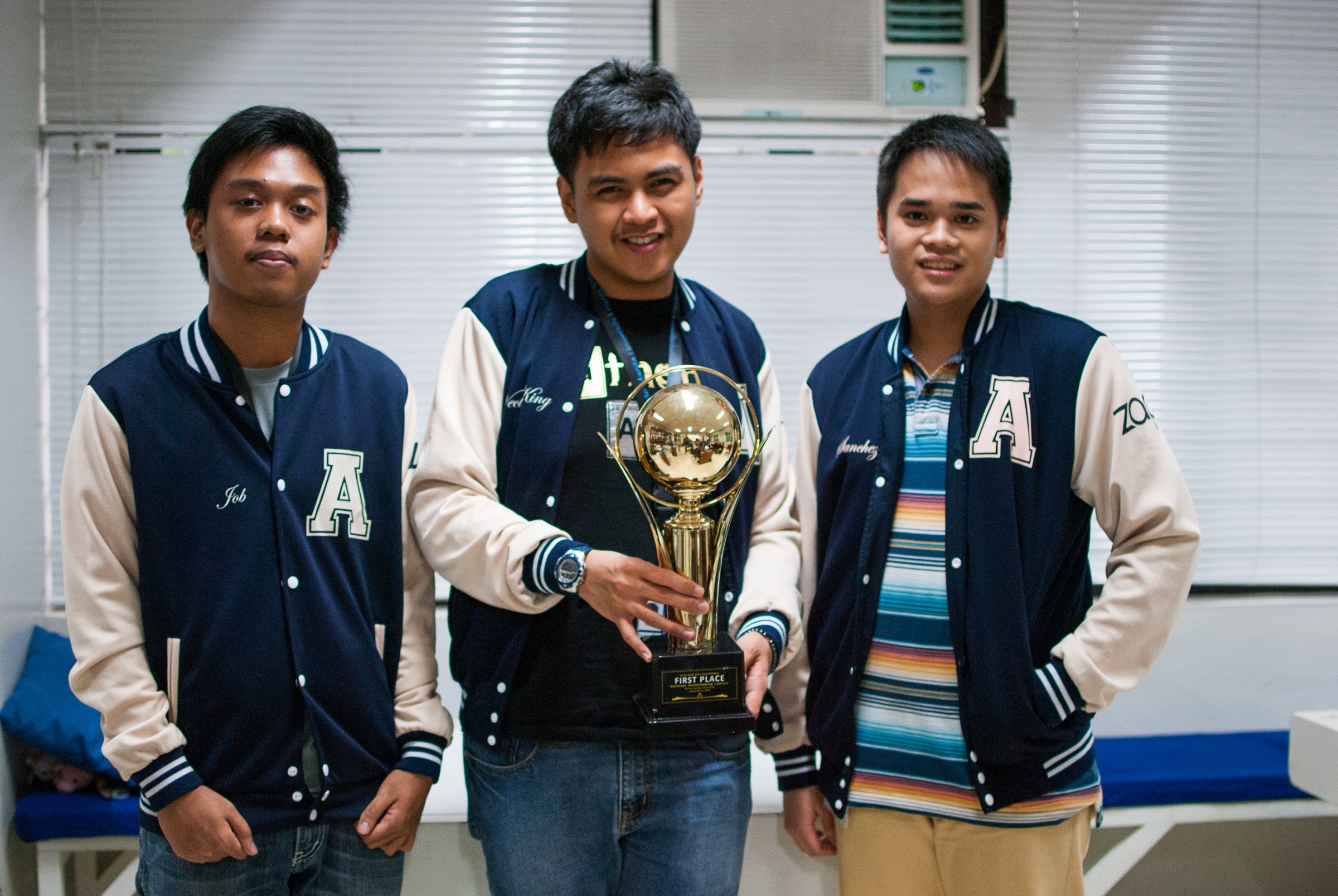
Team Operator. L-R: Job Eliezek Bangayan (4 BSMS CS), Jaren Ryan Rex (3 BS APS-ACS) and Gabriel Alberto Sanchez (4 BS CS)
“This is the strongest we’ve ever been… We’ve made an effort to train these teams regularly, and we’ve become more strict with recruitment… I think these have helped us get back on top,” Team Manager Mercedes Rodrigo, PhD said.
The teams’ ranks earned the Loyola Schools the Top Performing School title, besting 12 other schools from across the country.
Top team
Team Fuchsia Moth was the youngest among those sent to compete in Naga.
Despite their age, each team member has had significant experiences in Progvar such as competing separately at the University of the Philippines Java Cup.
Aside from their previous experiences, the team underwent extensive preparation.
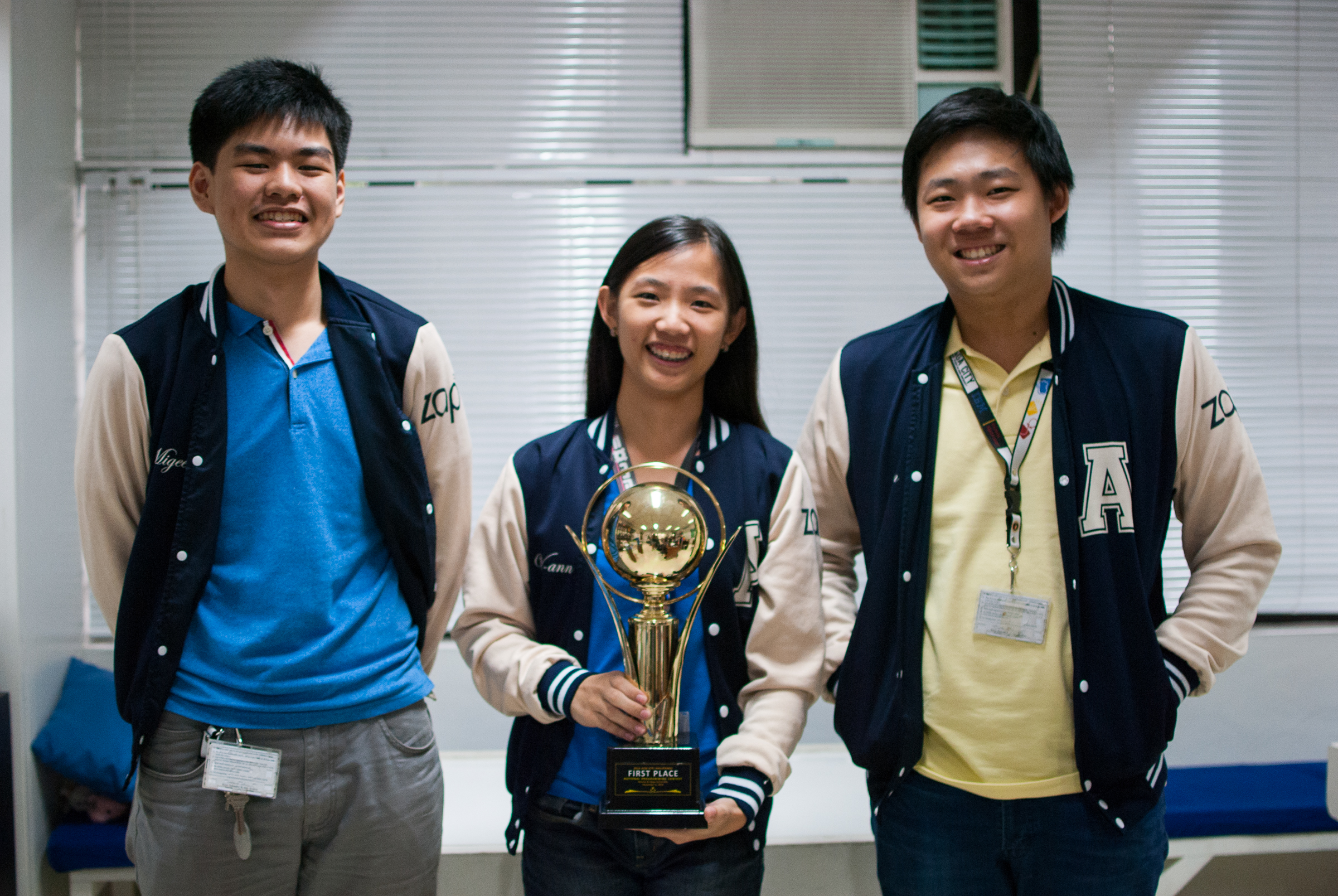
Team Bumblebee. L-R: Miguel Jesus Palma (3 BSMS CS), Vermille Ann Saw (3 BS CS) and Hadrian Jules Ang (3 BSMS CS)
“Our practice often involves us either learning new [programming and mathematical] concepts or working on problem sets often from past competitions… We spend around nine hours in scheduled practice for these events each week,” Cuajunco noted.
The members also solve problems in their free time.
“I have fun programming, so for me, [solving problems] refreshes me at the end of day and clears my mind… I really enjoy doing it, even outside of [scheduled practice],” said Tiongson.
In the national contest, teams were given five hours to solve 10 problems of varying difficulty. The teams were then ranked based on the number of problems solved and the time taken in solving each problem.
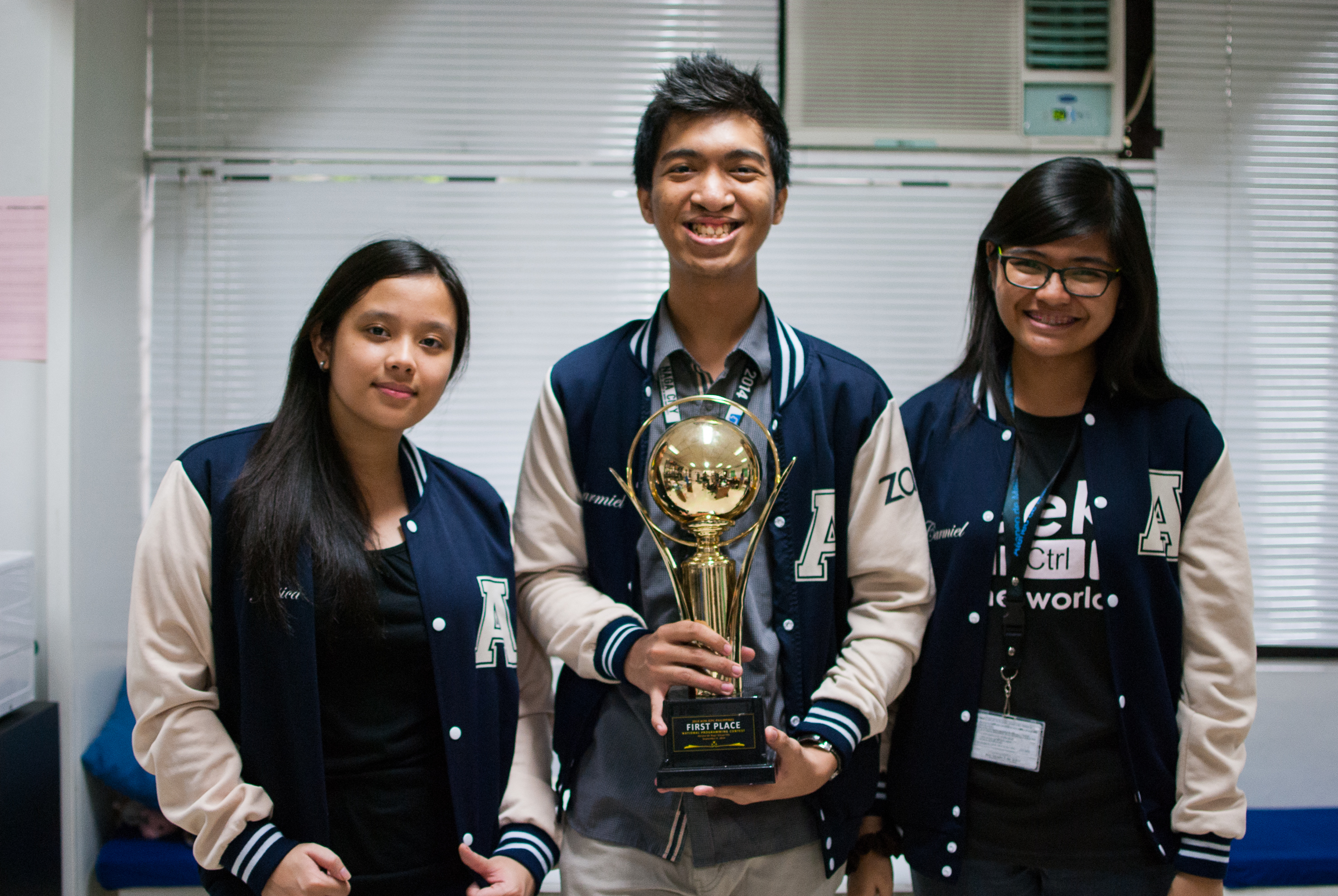
Team Carmiel. L-R: Camille Marie Ruiz (4 BS CS), Jan Amiel Reveche (4 BSMS CS) and Charlene Kate Tolentino (4 BS CS)
The time taken to solve all problems is based on the time elapsed since the beginning of the competition to the time of solution submission, with 20 minutes added for every incorrect solution submitted.
Solutions are programs created by the team to solve a given problem; the solutions are then run and checked by judges to validate adherence to the guidelines set out by the problem.
Fuchsia Moth solved all 10 problems provided in just 537 contest minutes, over 640 minutes less than the second place finisher.
In real time, the team took only two hours to solve the entire problem set.
For nine of the 10 problems they solved, Fuchsia Moth was the first to pass a solution.
Progvar primer
Each Progvar team is composed of three students with skills ranging from pure mathematics to different programming techniques. They often specialize in a certain field.
“Imagine a three-member basketball team, where one person’s the center, another’s the forward and the last is the guard. That’s how a Progvar team is formed, based on their specialties,” said Sanchez.
In the case of Fuchsia Moth, Cuajunco specialized in mathematics and computational geometry, See in dynamic programming and Tiongson in graph-related problems.
Sugay added that not all Progvar members hail from computer science.
“We’re (ProgVar) actually pretty open to students from all majors. Some members of the teams we sent to Naga are from different courses, such as physics and applied mathematics in finance,” she said.
“Every new member goes through a ‘beginner’s edition of Progvar,’ Progvar Lite, to help them learn the ropes and prepare them for competition,” she added.
Future competitions
Even though taking pole position in the nationwide contest does not guarantee participation in the world finals, Rodrigo sees it as a signifier of “how far the teams have come.”
Both the nationwide and regional editions of the contest are open to the country’s universities; however, only wins at the regional stage are counted on a team’s journey to the finals.
Sugay said that despite the fact that the national contest “was not a stepping stone to any further edition,” their participation allowed the teams to gain experience.
Rodrigo expects the teams to face significant hurdles in subsequent competitions as they have gotten tougher over the past 20 years of her involvement with Progvar.
Despite this, Rodrigo feels that the Progvar teams will be able to reach heights last seen in the late 1990s, when Ateneo’s Progvar squad sent two teams to the ACM-ICPC World Finals.
“We sent two teams to the world finals back then; they did not train as hard as the teams are now, and the teams [like Fuchsia Moth] haven’t encountered opponents at the regional stage yet,” Rodrigo said.
In light of Fuchsia Moth’s success, both Rodrigo and Sugay note that Progvar will send the team to the regional editions of the ACM-ICPC at Kuala Lumpur and Bangkok, from October 31 to November 1 and November 14 to 15, respectively.
The teams who take top positions at the regional level will advance to the 2015 ACM-ICPC World Finals to be held in Morocco.

